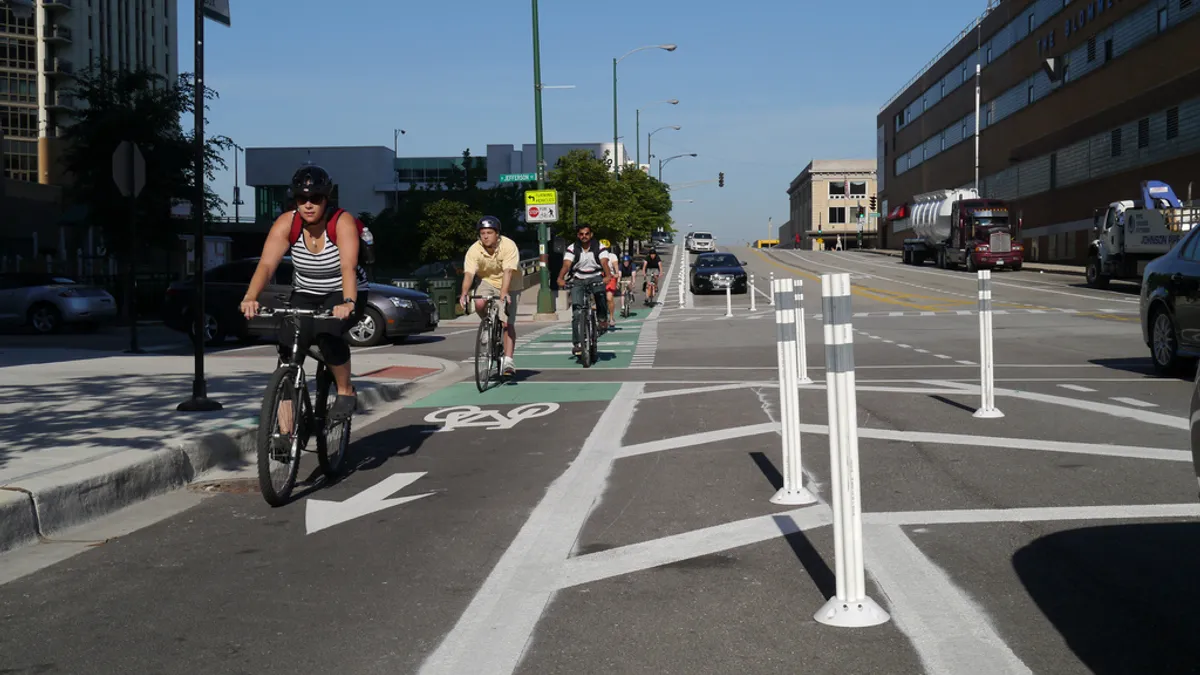Dive Brief:
- Reps. Earl Blumenauer, D-OR, Ayanna Pressley, D-MA, and Vern Buchanan, R-FL, introduced the Vision Zero Act, building on the efforts already underway in more than 40 communities across the country.
- Under the legislation, federal transportation funding and grants would be made available for more communities to design and implement Vision Zero programs, with a goal of eliminating all transportation-related fatalities.
- To free up that funding, the bill would revise the soon-to-expire Fixing America’s Surface Transportation (FAST) Act to give jurisdictions with Vision Zero plans access to almost $15 billion in funds from the Surface Transportation Block Grants, the Congestion Mitigation and Air Quality Improvement program and the Highway Safety Improvement program.
Dive Insight:
The need for more Vision Zero projects came into greater focus last week when the National Highway Traffic Safety Administration (NHTSA) released data showing that pedestrian deaths totaled 6,283, an increase of 3.4% and a record high since 1990, while deaths of those on pedal-powered bikes rose by 6.3% to 857.
And it's not the first time in recent months that safety-related legislation has been introduced in Congress. In July, U.S. Sen. Edward Markey, D-MA, and Rep. Steve Cohen, D-TN, introduced the Complete Streets Act in Congress, a federal law to promote safer street design. The bill would require states to set aside 5% of federal highway funding for a grant program that would fund Complete Streets projects.
So far, Vision Zero efforts have been rolled out on the city level. New York is one city that has implement a variety of programs to try and improve safety and encourage better driving, while Orlando has also increased its focus on street safety, having been named the most dangerous for pedestrians by Smart Growth America in a January report.
While national Vision Zero legislation may be uphill sledding in a Congress bedeviled by other political issues, this bill at least shows a willingness to tackle safety issues, and is complemented by other legislation that looks to encourage commuting by bicycle and enhance smart city initiatives. Advocates will hope it is the start of a national movement to encourage safer streets.












